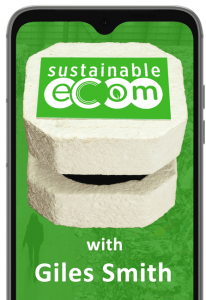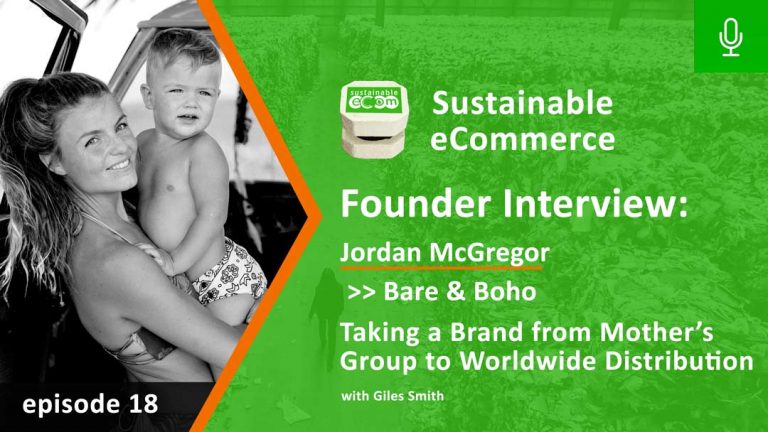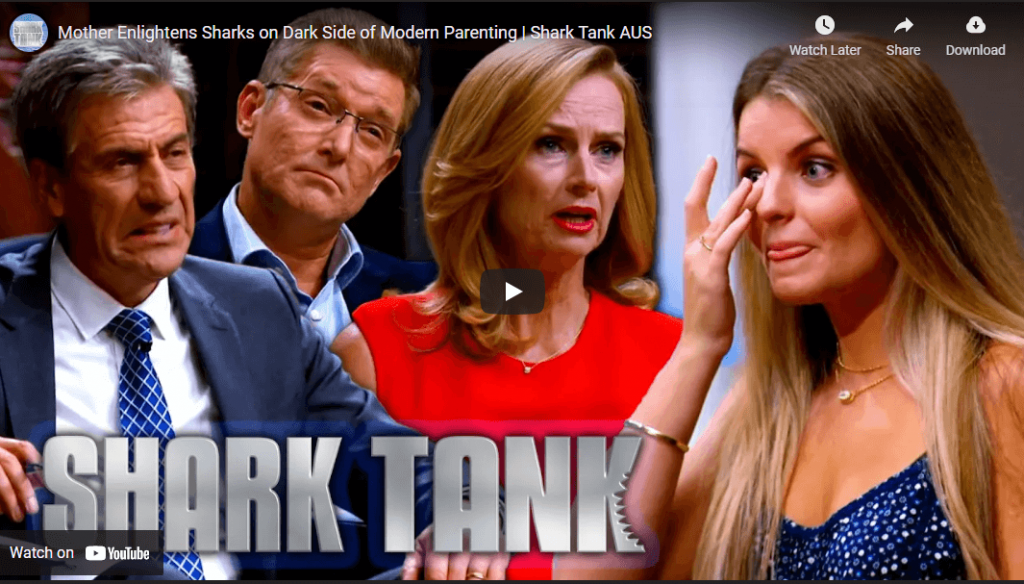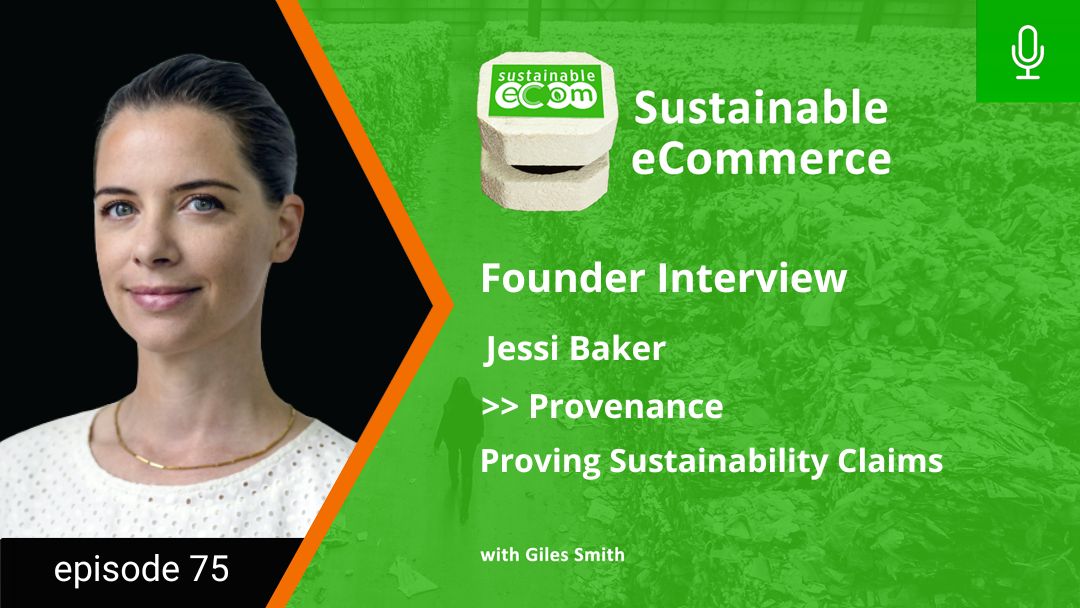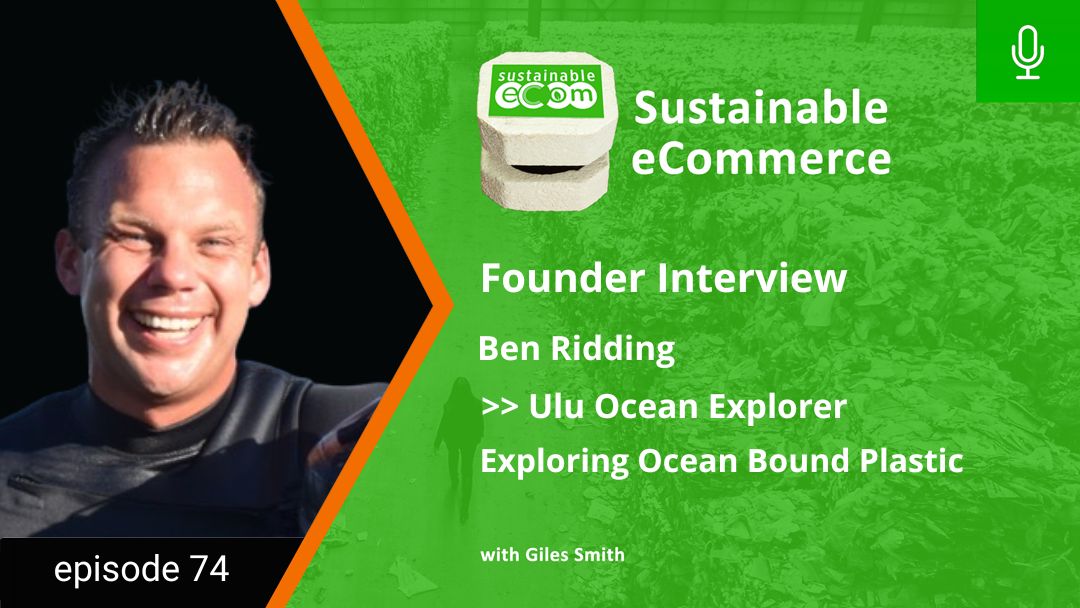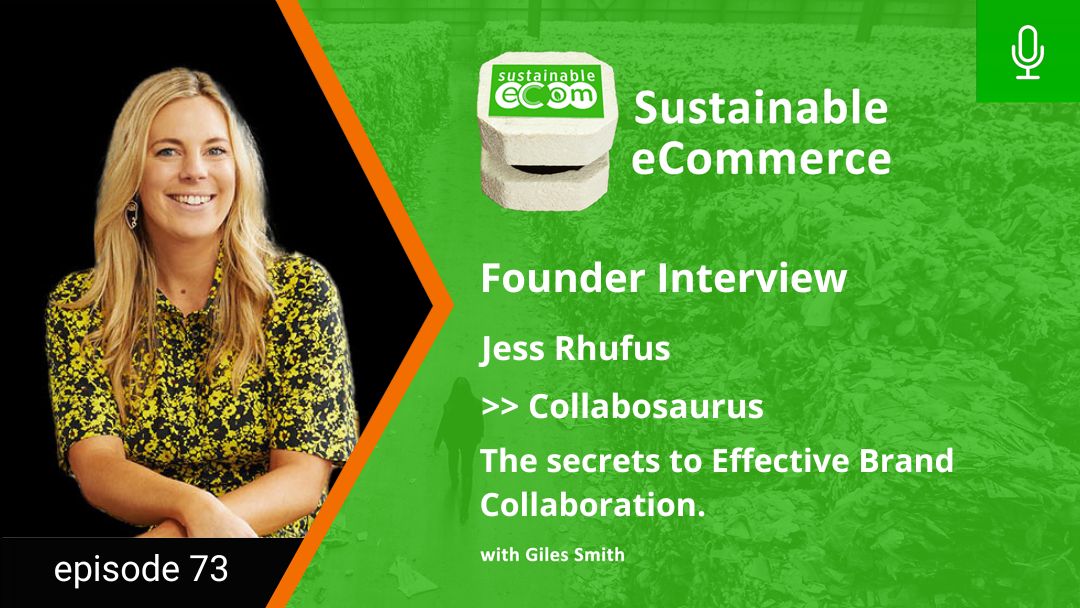Welcome to Episode 18 of the Sustainable Ecommerce Podcast
Today, I'm joined by the wonderful Jordan McGregor, founder and CEO of Bare & Boho, one of Australia's earliest success stories in the reusable nappy, nursery and female hygiene space.
Jordan takes us on a journey from figuring out how to make reusable nappies made from sustainable fabrics for her own baby, through initial sell-out success on a Facebook live and later breakthrough moments like appearing on Shark Tank and getting into Aldi, nationwide.
Nowadays her brand is an international success with distributors worldwide, and we look at how her team are refocusing on direct to consumer sales and what action they're taking to keep you in front of the changing expectations of their customers.
Even if you don't know Jordan, you can't help but feel a sense of pride in all she's accomplished. And I'm so happy she’s shared her story with us.
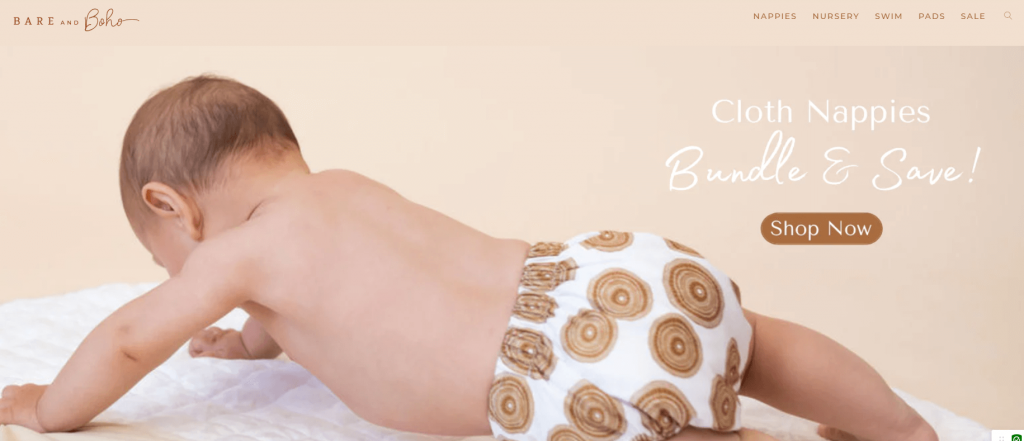
Giles Smith: Jordan McGregor. Welcome to the show!
Jordan McGregor: Thanks so for having me!
Giles Smith: There are so many parts to your brand that I want to unpick, but before we get into all of that, tell us a little bit about Bare & Boho, how did you come to start this thing?
Jordan McGregor: It's a bit of a funny story. We started out with me having my first son and realizing we're just wasting so much, not only money, but a lot of rubbish, just going straight to landfill with nappies, wipes, all of those things that are very common when you have a baby.
So, I went on a hunt to find a reusable alternative. And really at that point there wasn't anything that was definitely mainstream or accessible and also affordable. So I designed my own cloth nappy. I actually drew it up initially and went to a seamstress in Townsville.
So we had a few prototypes made and eventually I had one that I ended up using, and in the mother's groups up there, I was pitching my product saying, look, this is what I use. All of a sudden, a lot of the fellow moms were actually wanting to access this. I knew I really had to try and work out how we can produce more.
Our seamstress at the time really could only make probably one a month, which really isn't a viable solution even for one child. So I began taking photos of that looking overseas, working with different manufacturers and eventually found one that worked with price point, and also our ethical values.
A few months later we launched it to the world via Facebook video, and that first night we sold out completely! That was about $14,000 worth of stock, which was a lot for my little business. I thought that stock would last me about a year!
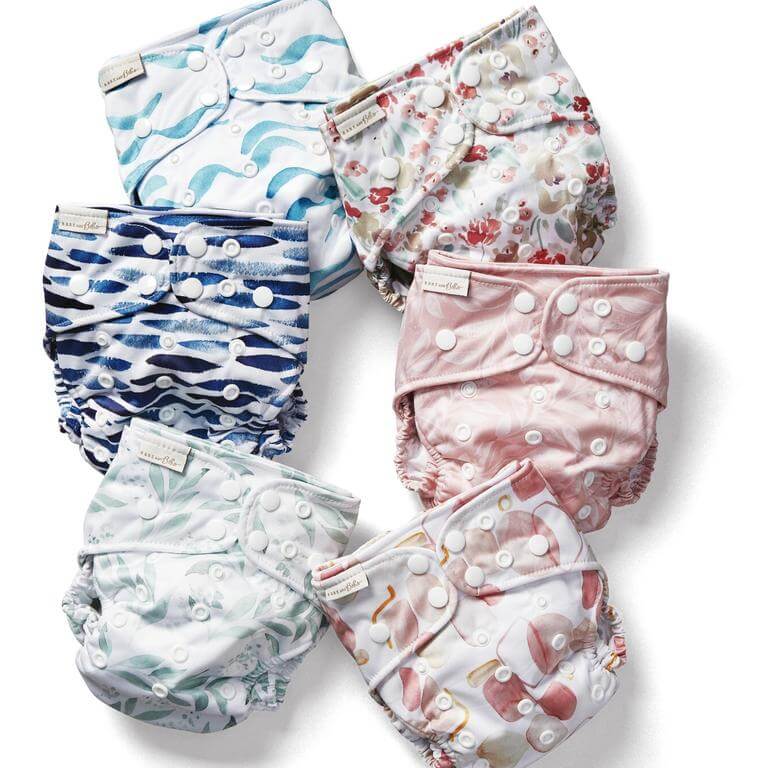
Giles Smith: What a tremendous kickoff! So what was the next step?
Jordan McGregor: Well, we were so unprepared for that success – we didn’t even have postage satchels! We took trolley after trolley down to the Post Office. From there we were basically in a mode of being sold out for the next 2 years. Anything I had coming in I'd pop on the website. It sold as soon as it arrived, we didn’t even need a warehouse space because we just packed orders as soon as the deliver arrived. We just couldn't keep up with the demand.
At that point, I was also really promoting my brand at baby expos. I was attending two to four exposure year, promoting the brand, taking what little stock I had because I had no stock. It was all sold out online. I would take pre-orders via email, or having them register at the expo and calling them to take their order later.
At one of those expos, I had the Aldi baby buyers come out and they said, oh, we really love your product. They loved it. We got chatting. And then probably a week later, I got an email from them saying they wanted to launched the first reusable of nappy in the Audi stores nationwide. Obviously I was beyond excited. They invited me down to pitch the product officially in their office.
I took a nappy down, I didn't even have packaging. I didn't have a barcode. I didn't have any of that. And just basically said, look, this is the product. To meet the price point, we'd have to make it a little bit more basic than our online version. So we designed a new nappy and launched that in February 2020.
The product sold out in five minutes, nationwide. It was on the media. That was just so fun. I think that really started our exposure in retail stores, and since then we’ve been able to gain access to many other retail stores and distributors through that campaign and that experience.
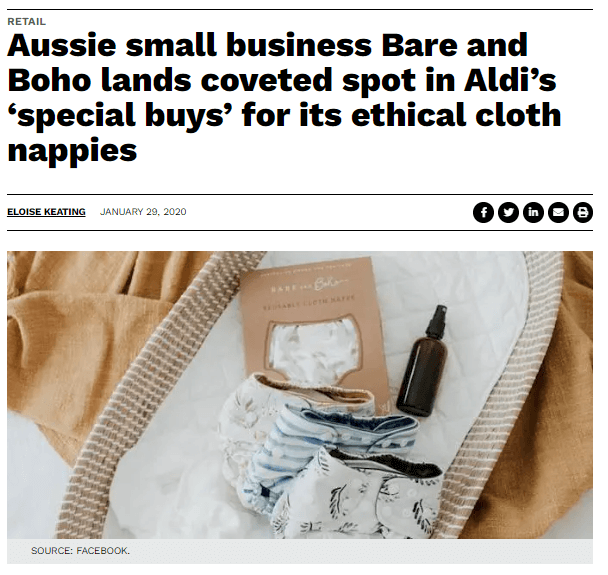
Giles Smith: You also had an experience with Shark Tank, where was that in your journey?
Jordan McGregor: I saw the email come up, “apply for shark tank if you've got a business or a brand”, that was in late 2018. We'd been live for about 12 months at that point. I just thought, let's go for it. I pitched my product to the producers. I had a baby on my hip because he was attached to me at that point.
Giles Smith: A Baby as a marketing tool! Brilliant.
Jordan McGregor: I had no choice, but yes it was! We pitched our product and they loved it. It was a very nerve-wracking experience, but it was filming for about two hours before the shark tank investors and we received investment.
At that point, it wasn't that we needed the money in the business. It was just more, I needed mentorship as to where to take the brand now, because we were moving so fast at that point. So, I was just happy to get someone on board who believed in a product and believed in the brand. Before it actually went live on TV, four or five months later, the producers emailed me and said, your website is not going to handle the traffic. They convinced me I needed to replatform.
So, we went ahead and moved from Squarespace to Shopify. And I’m so glad we did. After the episode, the Shopify app on my phone just started pining with orders, and that really boosted us for about six months to 12 months after with enquiries. Do we do it for adults, the aged care sector, children in disability, there was all of these opportunities opening for us.
From there, our brand just grew and grew.
Giles Smith: Amazing. What an incredible journey. And so incredibly smart from a cashflow perspective. You started out by getting paid even before you put the factory orders in.
So where are you today in terms of the balance of your business. Is it mostly retail through your store? Is it mostly wholesale through your distributor?
Jordan McGregor: Up to Shark Tank, we were solely B2C through that little e-com platform. After shark tank, we put a bit more of the infrastructure needed to support a B2B, direct to boutiques. So that was all the small boutiques here in Australia and New Zealand. And then I guess over time, once we were able to create that partnership with Aldi, that was the first exploration of major retail partnerships.
So that was our first kind of deep dive into major retail. That's been a couple of years now. Um, we still have more beautiful contracts to launch in store with Aldi.
Since then we've really been omnichannel, not only do we have the B2C and B2B through our ecom, we also do our major retail partnerships with Aldi, Woolworth, iconic and we also do online marketplaces. We are also working through distributorships, internationally. For now that's really working for us.
I think COVID was really instrumental to not only have the e-com side, but also the more budget, retail partnership options. So people could go in and get their nappy while they were getting their groceries. And it was at a price point that was really friendly.
I think over time, we are hoping to focus more on the B2C, but in order to do that, it does need a lot of infrastructure and tech integration on the website to be competitive in a true B2C space.
So we' just really balancing all at the moment. We know we need to create more of a customized, personalized experience through our e-com platform.

Giles Smith: One of the greatest challenges that we often face is finding a balance between managing our wholesale partners and the DTC in terms of pricing pressures, how are you managing that?
Jordan McGregor: Really, it's very different. The not only the price point, but the purchasing of a major retail is, you know, one end of the spectrum and then purchasing for your e-com is the other end. Retail distribution has other benefits, for example during COVID, we couldn’t get shipping containers in, but our major retailers could. I guess what we're trying to do is, is understand really what is required to be a true online B2C player.
To do that, you do not only need to spend a lot in your infrastructure and the tech, but you also probably need to lose some of that B2B sales channels. Our B2B is something that we really value and cherish, and I think through them we are able to pitch ourselves at a price point that is valuable to the customer. Through our ecom we are able to give more of a high-end, customized, personalized experience. I do believe that omnichannel is really important for us. We don't think we'll ever be truly B2C only.
Giles Smith: You have obviously built out a lot of different products now from those early days and working with different suppliers. You’re working with SEDEX, how important is that to your supply chain?
Jordan McGregor: I guess it's two parts to that. I've got two little boys and really every single product we've launched has been part of my parenting journey. We went through the newborn nappies. Then to the one size nappies, then training pullups, then we're starting swim lessons, so we need a reasonable swim nappy. Then we're at the beach all day. We need a protective swimwear. Plus we need all of those accessories that go with that journey.
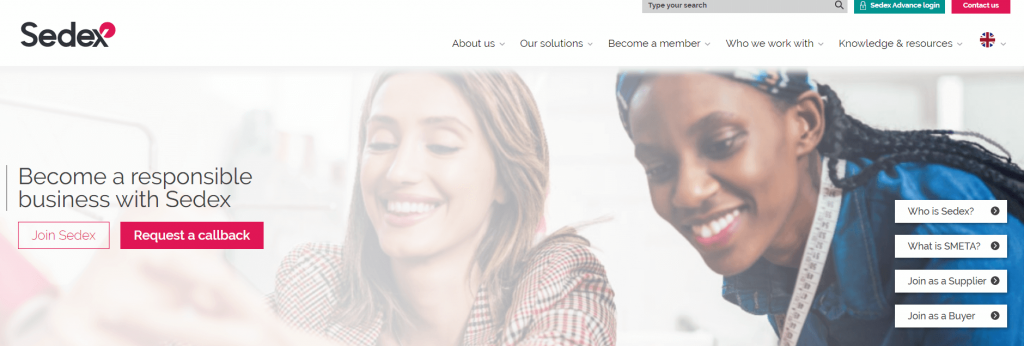
So really everything to date has been something that I've wanted to use and ticks off those boxes of that life cycle from newborn up to early kindergarten.
We're really trying to cater to not only the eco-friendly budget minded parent who wants to reusable nappy, but also really using those recycled and eco-friendly fibres that we have and push that into new product ranges that can appeal to parents who may not want to use re-usable nappy. So I think we're trying to offer a wide variety of products so that we're not really pigeonholing any parent.
With our SEDEX platform, that's something that has always been important for us. We do produce in China. Everything's designed here and, and we work with Australian designers, but we actually produce the product in China. So with that does come a lot of uncertainty. How that product is being produced. And it was really important for me from the get go that I had a one to one relationship with the manufacturing owner, but also understanding how his team worked, how the production worked and, and really being part of that process.
So now we work with up to five or six manufacturers over a variety of different product ranges. And the SEDEX platform actually allows us to maintain that high level of standard without us actually needing to do all of the auditing ourselves. They have a very high standard. It's allowed us to maintain that ethical standard without us needing to do that ourselves when we may not really understand, all the legal, technical, or safety requirements relevant in China.
Now that the world's opened up, we’re also trying to find other manufacturing facilities outside of China which is really important to us for our outside supply chain protection
Giles Smith: Have you seen customer demand for this sort of stuff shift over time?
Jordan McGregor: That’s a really interesting point. The reason why I started my own line was because I couldn't find what I needed. The reusable nappy space at that point was underground. You either had to understand what you were looking for, or you were already, a huge eco warrior, so we needed to bring it out of that hippie parent only space and make it mainstream.
And I think part of that progression is not only our consumers understanding more environmentally wise, but actually budget wise as well, and really knowing your options. And so for us, we've never really pitched it as you're cloth nappies or nothing. It's really how can cloth Nappies assist you?
How can they help in reducing household spend and also reducing our landfill. We have to work hard on delivering that message.
Giles Smith: Yeah. So are you finding increasing competition from perhaps more traditional brands out there that you hadn't seen before?
Jordan McGregor: Yeah, there's definitely a bit of that. There's a little bit of that greenwashing of product. Like, how can we make our disposable product seem less troublesome? But there’s also brands that are making re-usable nappies now that weren’t before to meet this demand. Now, we’re fighting that by making sure that we can diversify as well so that we're not only offering a reusable nappy, but the next stage and the next in the baby’s growth.
When we were dealing with Aldi over the last 12 months it was important to ensure they knew that we wanted to expand beyond just a reusable nappies. So we are actually dropping a reusable training pull up in Aldi in October, which is so exciting.
The other thing that’s changed is that it isn’t just beautiful prints on the reusable nappy that sells any more as it has gone mainstream, so we need to find new ways to tell our message about the household benefits as well as the sustainability story in order to reach the new needs of the customer.
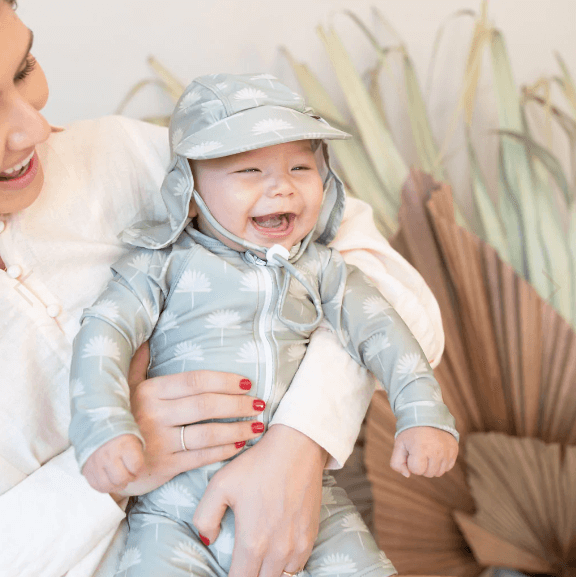
Giles Smith: You've already accomplished such tremendous success with onboarding partners in doing that sort of stuff. What's next on your trajectory?
Jordan McGregor: We’re actually overhauling our systems, our operations, the way that we bundle and conceptualize the product for the customer.
There's a lot going on there. But the reason why we're doing that is so we have an easily exportable, not only product range, but system. So if we want go into a 3PL in the US, we can do that.
For the last 5 years we’ve been busy just keeping up with demand, but for the next 5 years we are being a bit more strategic. Where do we want our product? How do we want it portrayed? How can we meet the customer's demands and really making sure that we can have a customer looking at our social media in Germany. And they're being out, being able to buy it straight away.
So that's where we're at. At the moment we've got this beautiful Australian household name. We have a distributors in Japan, stockists throughout Europe, US, Hong Kong and Singapore. We need to make sure that we are keeping our product on trend and easily accessible, affordable, so we can meet the customer wherever they are around the world.
Giles Smith: It is very exciting. It's wonderful to see such a success story in the space of sustainable brands. Now, where can people buy these wonderful products, Jordan?
Jordan McGregor: Well, there's a few places that you can shop our product. Of course, our biggest one would be Instagram we're at bareandboho. Then direct to our website, baraandboho.com.au, obviously Facebook and very soon TikTok.
Giles Smith: Fantastic Jordan, thank you so much for sharing your amazing journey with us today on the show, and we wish you continued enormous success, uh, over the next five years.
Jordan McGregor: Thanks so much, Giles.
Top 3 Takeouts
Jordan was very smart with how she launched her brand. What kills most brands in the early stages, even ones with great ideas, is the cashflow required to keep up with growth. Jordan managed that by pre-selling before placing factory orders.
That’s a strategy we’ve used with our clients many times for product launches. To be effective, you need to be selling a product that people are prepared to wait for (in other words, they can’t get it anywhere else). You also need to be front up as the face of the brand, so that people place their trust in you, not some faceless business.
I love how Jordan is thinking about long term customer value. When you’re making something that a customer may never need to buy again (ie reusable nappies), you have to keep working on other products your customers are going to need that are aligned with your brand and strengthen your connection with your customers. Jordans brand makes this so clear because as your baby gets older, they need different things.
Think how your customer evolves and what journey they are on to figure our useful products you can offer them over the long term.
- Lastly, Jordans observations about how consumer demand is changing is bang on. It isn’t just eco-warriors buying and using sustainable products any more, it’s gone mainstream. If your messaging isn’t connecting with this new and much bigger part of the market, you are almost certainly missing out on growth opportunities.
I hope you enjoyed Jordan’s story and got some inspiration from that for your own business. I’ll see you for another great sustainable brand story next week!





